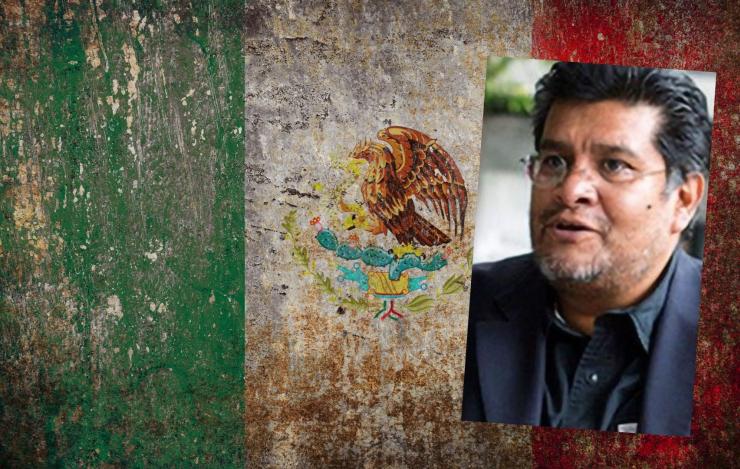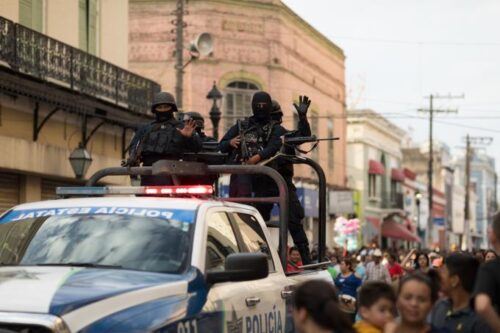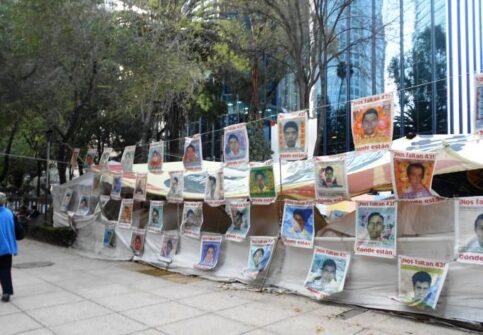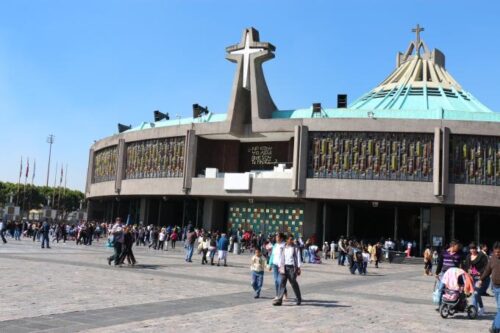Mexico. The Priest who Challenges the Narcos with the News.

Being both a priest and a journalist represents the two most dangerous missions ever. This is the experience of Father Omar Sotelo Aguilar, an energetic Mexican priest of the Society of San Paolo who for years has been at the forefront of reporting on the criminal system that entraps his country.
In Mexico, last year alone, fourteen journalists have, while in the last decade as many as thirty religious, lost their lives because of their commitment to working alongside the people. But ‘information can help change things’. Father Omar has always been convinced of this, ever since, as a boy, he felt this ‘double vocation’ for the first time. He says: “Since I loved playing soccer, a priest from the diocesan seminary of Mexico City invited me to participate in a tournament. By mistake, however, I ended up at the Pauline seminary and there, as well as the enormous football pitch, I was struck by the printing press run by priests: the congregation founded by Don Giacomo Alberione in fact has the mission of spreading the message of Jesus precisely through the means of social communication”.

Father Joaquín Mora and Father Javier Campos were murdered on June 20, 2022. (Photo: Aid to the Church in Need)
Everything else came as a consequence of that meeting: young Omar began his training to become a priest, while in him the fascination for what he calls ‘the art of journalism’, especially investigative, grew. Newly ordained, he began working with the Mexican episcopal conference for which he helped set up the Multimedia Catholic Centre: “Originally it was a project to unite the communication efforts of over one hundred Mexican dioceses – he says – but soon we began to aggregate a group of independent professionals with the aim of working on the
hottest topics of current events”.
Today, the Centre of which Father Sotelo Aguilar is the director, represents a point of reference at a national level – and beyond – on reporting information, in particular of the violence against ecclesial operators. His role has also been confirmed by important awards, such as the National Journalism Award for the ‘Human Rights’ section thanks to an investigation into the ‘Tragedy of the priesthood in Mexico.’

Matamoros, Tamaulipas. Mexican armed forces during operations in north eastern Mexico. Photo: 123rf
Father Omar says: “In recent years we have carried out various journalistic projects, also through videos or short films, to denounce what is wrong in Mexico. For example, we produced a series of thirteen documentaries entitled ‘Hermano narco’ (‘Brother narco’) with the aim of giving a voice to witnesses who have unfortunately fallen into the trap of organized crime, to demonstrate that responding to violence with more violence only multiplies suffering. The only way to change things is to draw on one of the most proper qualities of the human being, and that is the ability to forgive; forgiveness is not only a religious concept, but it is the only human feeling that can break the barriers of hate. So, with our work, we have tried to get this message across to those men and women whose lives have been turned upside down by crime, to try to rehumanize what had been dehumanized”.
The Pauline priest insists that using language “that touches the experience of both the victims and the perpetrators can transform the context. Here, this is precisely our task: to have an impact on people’s lives, on public opinion, on society. Then, of course, our commitment also focuses on denouncing attacks on the Church, given that in the last decade Mexico has confirmed itself as one of the most dangerous countries for religious. In the period of Andrés Manuel López Obrador’s government alone, i.e., just over four years, we have already had seven priests murdered, in addition to another eight who survived attacks”.

Mexico City. The Supreme Court building. Photo: Thelmadatter
But why such fury against the Catholic Church? “The Church in Mexico has often been attacked since the times of the ‘cristera’ war of 1929 when attempts were made to eliminate it from the national territory. Today we are not faced with real persecution, yet the situation is in some ways more dangerous than a hundred years ago because religious are targeted to sow a culture of death, terror, and corruption in society. Let me explain: in Mexico, when a priest is assassinated, it affects not just a person but an entire community, in the midst of which he acts as a social stabilizer. In fact, religious do not only provide a pastoral and spiritual service but also work in education, the protection of health and the protection of human rights. Just think of the enormous work alongside the masses of desperate people who reach Mexico from Central America seeking the mirage of the United States and who very often end up in the mesh of organized crime. Here, when a priest is eliminated,
society is destabilized”.
Father Omar recognizes that in many parts of the country, there is now a narcoculture, a narcoeconomy and even a narcogovernment; organized crime has managed to infiltrate organizations such as the army, the navy and even federal and state governments. And he gives an example: “The former Mexican Secretary of Public Security, Genaro Garcia Luna, is currently detained in the United States for conspiracy to drug trafficking; he allegedly received millions of dollars in bribes from the Sinaloa cartel of ‘Chapo’ Guzmán. There are governors, deputies and ministers linked to crime and those who denounce this anomaly, which directly impacts the country’s progress, ending up in the crosshairs. Last year there were more than 850 death threats against priests, and I personally know many journalists who have suffered these same attacks”.

On the evening of 26 September 2014, a group of 43 Mexican students disappeared in south-western Guerrero state. “There are more than 100,000 disappeared and 350,000 victims due to organized crime”Photo: File Swm
But often the perpetrators of assaults and murders are not found. The priest says: “There are several factors. On the one hand, there is so much violence – more than 100,000 disappeared and 350,000 victims due to organized crime – that public security institutions cannot keep up. Obviously then there is also the political aspect: I am only mentioning the case of Cardinal Juan Jesús Posadas Ocampo, the archbishop of Guadalajara assassinated in 1993 by the will of the Tijuana cartel for his inexhaustible fight against drug trafficking. A cardinal was killed in an international airport, and thirty years later we have not a single culprit detained for this crime! A monument to impunity. And so, in 80% of cases, the investigations into the murders of priests have led nowhere. The scene is one in which the inability and lack of preparation of the security forces are all too evident”.

Mexico City. The Basilica of Our Lady of Guadalupe. “When a priest is assassinated, it affects not just a person but an entire community”. Photo File Swm
Regarding the reason why the perpetrators of assaults and murders are not found, Father Omar, who was repeatedly threatened with death says: There are several factors: “Everyone is exposed to violence in some way; every Mexican is afraid. However, we who are engaged in communication and evangelization have the obligation and the privilege to continue to announce and denounce. It’s true, we do expose ourselves to danger, but someone has to do it, right? And I love what I do. Organized crime tries to keep us silent and to trap us in the culture of silence; we must be the voice – as the prophet says – that cries out in the desert, influencing public opinion to change things. Mexico is a beautiful place, and it doesn’t deserve what it’s going through”. (Photo:123rf – Aid to the Church in Need)
Chiara Zappa/MM



